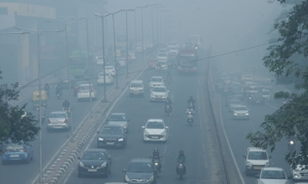High levels of air pollution is likely to reduce the life expectancy of about 40% of Indians by more than 9 years, according to a report released on Wednesday by the Energy Policy Institute at the University of Chicago (EPIC).
More than 480 million people living in the vast swathes of central, eastern and northern India, including the country’s capital, New Delhi, endure significantly high pollution levels, said the report India's high levels of air pollution have expanded geographically over time at an alarming pace, the report states.
For example, air quality has significantly worsened in Maharashtra and Madhya Pradesh, the US research group’s report points out.
Also read: Half-way through, NCAP shows sign of hope
At the same time praising India's National Clean Air Program (NCAP), launched in 2019 to reduce dangerous pollution levels, the EPIC report said "achieving and sustaining" the NCAP goals would raise the country's overall life expectancy by 1.7 years and that of New Delhi residents by 3.1 years.
The NCAP aims to reduce pollution in the 102 worst-affected cities by 20%-30% by 2024 by ensuring cuts in industrial emissions and vehicular exhaust. More stringent rules for transport fuels and biomass burning and control over dust pollution are expected to bring down pollution further. It will also involve better monitoring systems.
New Delhi was ranked the world's most polluted capital for the third consecutive year in 2020, according to IQAir, a Swiss group that measures air quality levels.
According to the EPIC's findings, neighbouring Bangladesh could raise average life expectancy by 5.4 years if the country improves air quality to levels recommended by the World Health Organization.
To arrive at the life expectancy number, EPIC compared the health of people exposed to different levels of long-term air pollution and applied the results to various places in India.




















